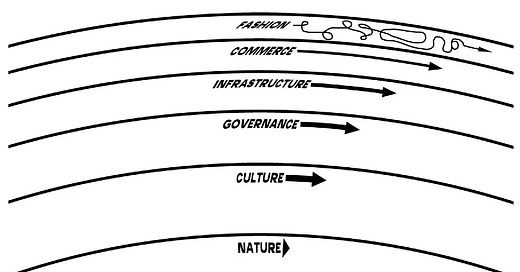This is an updated piece we originally ran in WITI in 2019. Hope you enjoy. - Noah (NRB)
Noah here. Advice is a weird thing. Take parenting—everyone will tell you how to raise your kids, but none of them have raised your kids. In fact, even the most famous parenting experts are working off a tiny dataset. The whole thing was well-explained in an excellent Guardian piece on the parenting industry from a few years ago:
Parenting experts who are childless, such as the ‘queen of routine’ Gina Ford, author of the unavoidable Contented Little Baby series, attract a lot of sharp words for it, but this seems unfair. Where Ford has direct experience of parenting none of the 130 million babies born on Earth each year, most gurus only have direct experience of parenting two or three babies, which isn’t much better as a sample size. The assumption that whatever worked for you will probably work for everyone, which is endemic in the self-help world, reaches an extreme in the pages of baby books.
Why is this interesting?
Advice is everywhere and it's not clear how useful any of it actually is. “It would be really nice if information that could transform someone’s values was able to be handed over as cheaply as driving instructions,” philosopher Agnes Callard explained in one of my favorite articles of the last few years. “In such a world, people could be of profound assistance to one another with little investment in one another’s lives. The myth of advice is the possibility that we can transform one another with the most glancing contact." When advice is offered without request it’s almost always condescending, and even when it’s sought out, it’s often so superficial that it tends towards common sense. (Collard opens with a story of author Margaret Atwood offering advice that effectively amounted to “practice writing”.)
That’s not to say that people can’t help others by sharing their experiences, but that’s what instruction and coaching are for. Advice tries to cover both the step-by-step nature of instruction and the emotional value of coaching. Per the piece, “The problem here is a mismatch between form and content. Instrumental knowledge is knowledge of universals: whenever you have an X, it will get you a Y. I can give you such knowledge without having any robust connection to one another. Knowledge of becoming, by contrast, always involves a particularized grasp of where the aspirant currently stands on the path between total cluelessness and near-perfection.” Advice, in other words, occupies the dreaded middle ground, delivering neither value nor instruction particularly well.
This is what’s attracted me to mental models over the last few years. The idea, which dates back to the 1940s, is that each of us carries a small-scale model of the world in our head and runs different scenarios and simulations through that model to make decisions. Charlie Munger, who is Warren Buffett's business partner, famously gave a speech to the USC Business School in 1994 in which he explained that he and Buffet run Berkshire Hathaway using only 100 mental models. “You’ve got to have models in your head. And you’ve got to array your experience—both vicarious and direct—on this latticework of models,” he explained to the students.
These mental models, which are easier thought of as decision-making frameworks, operate as a kind of meta-advice: they’re the thing that caused someone to make the decision that eventually led to the outcome that you’re now offering in the form of advice. They range from relatively simple concepts like sunk costs in psychology and economics to models that try to wrap up how all civilization functions like Stewart Brand and Brian Eno’s Pace Layers (pictured below).
In the end, advice is like a solid substance while models are refractive—allowing waves to pass through and altering their shape and color on the way out. By working back and understanding the underlying frameworks that led to decisions, you actually have a tool that, when used alongside other frameworks, can help answer both what you should value and how to approach a problem. (NRB)
Quick Links:
Thanks for reading,
Noah (NRB) & Colin (CJN)
—
Why is this interesting? is a daily email from Noah Brier & Colin Nagy (and friends!) about interesting things. If you’ve enjoyed this edition, please consider forwarding it to a friend. If you’re reading it for the first time, consider subscribing (it’s free!).




I was surprised the Agnes Callard article mentioned wasn't linked. I believe it's this one: https://thepointmag.com/examined-life/against-advice-agnes-callard/